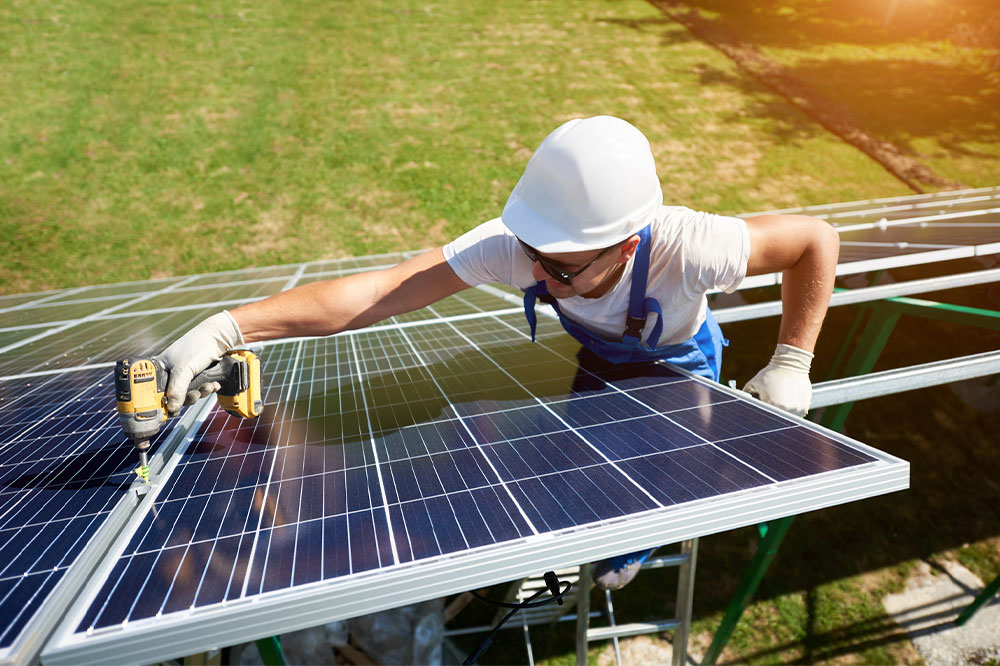
Solar panels – Overview, types, and benefits
Today, if humans touch the skies and pave the way for scientific revolutions, it is because of the earth’s immense resilience. Unfortunately, the earth’s energy reserves are depleting rapidly owing to overpopulation and ever-growing human needs. Hence, it is crucial to conserve energy for future generations. Solar energy is a renewable fuel source that can be harnessed without fearing resource depletion. Here’s a guide on solar energy, its benefits, and types:
What is solar energy?
Solar energy refers to electrical energy harnessed from the sun’s radiation. Advanced solar technology converts sunlight to electrical power through photovoltaic (PV) panels or mirrors. This form of energy does not deplete with increased consumption and is therefore classified as a renewable energy source. As a result, solar power is increasingly being harnessed in homes and commercial complexes, particularly among environmentally conscious individuals. According to reports by the Solar Energy Industries Association, home solar power is expected to grow by 6,000-7,000 MW annually between 2023 and 2027.
Benefits of solar power
A step toward resource conservation
One of the most significant benefits of harnessing solar power is that it is renewable, i.e., its reserves will not deplete with time. Thus, it is a good alternative to nonrenewable sources like coal, oil, and natural gas, which deplete with excessive consumption.
An environment-friendly option
Unlike conventional fuel sources, solar power does not emit greenhouse gasses. Therefore, using solar energy can contribute to a healthier and pollution-free environment.
Resilience to power outages
The process of harnessing solar energy can continue even during power outages. Thus, appliances powered by solar energy are unaffected by power cuts.
Reduction in energy bills
Replacing conventional energy sources with solar power can cause a significant reduction in one’s electricity bills. One may also avail of credit for surplus solar energy that has not been utilized.
Types of solar power
Photovoltaic solar energy
This type of solar energy is harnessed through photovoltaic panels comprising several solar cells. These cells produce electricity, which is converted to alternating current by converters. Photovoltaic solar energy is among the most popular types of solar power today.
Solar thermal energy
This type of system comprises two major components – reflectors and receivers. The reflectors capture sunlight to harness energy, whereas the receivers create and circulate a heat-transfer fluid to generate steam. A turbine then converts this steam to mechanical energy, which powers a generator and facilitates the electricity supply.
Concentrated solar power
This type of solar power uses mirrors and lenses to concentrate sunlight to a solar receiver, generating solar energy. A generator receives this heat energy and converts it to electricity. Concentrated solar power is often used on a large scale and is another popular type of solar energy.
Water heating solar power
This type of solar power is commonly used in households and commercial spaces. Here, a sun-facing collector generates a working fluid, which passes through a storage system, where water is heated.
Solar panels typically range from $3,500 to $35,000, depending on the scale, geographical location, weather conditions, etc. Hence, it is advisable to consult a reliable solar panel manufacturer, explain one’s requirements, and research the options available before installing.




